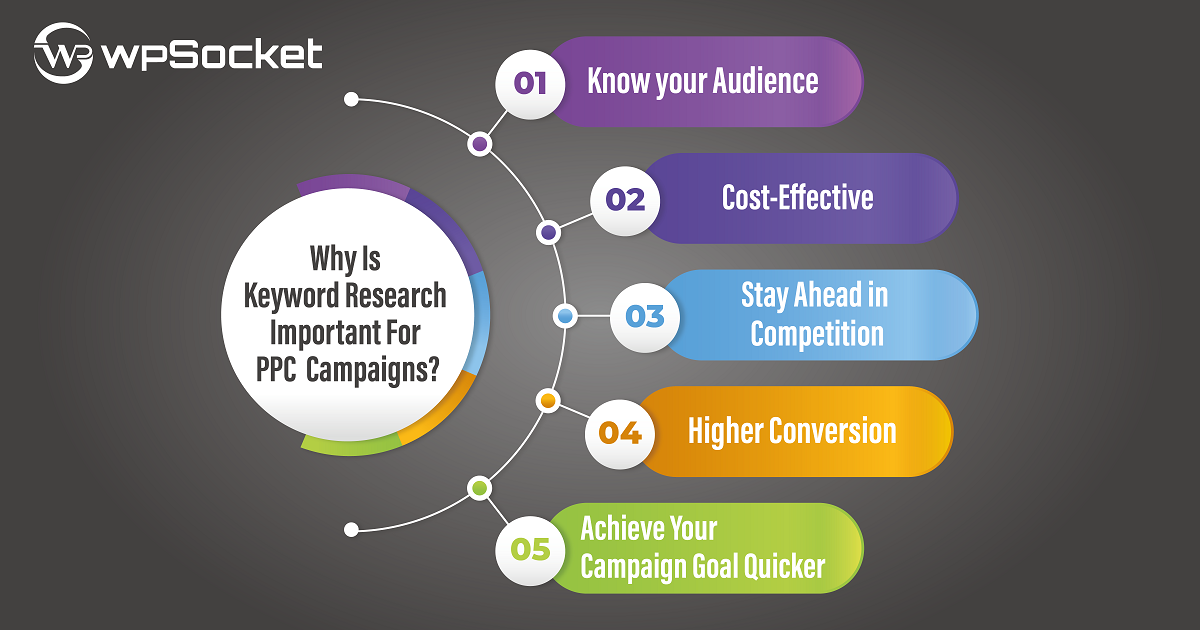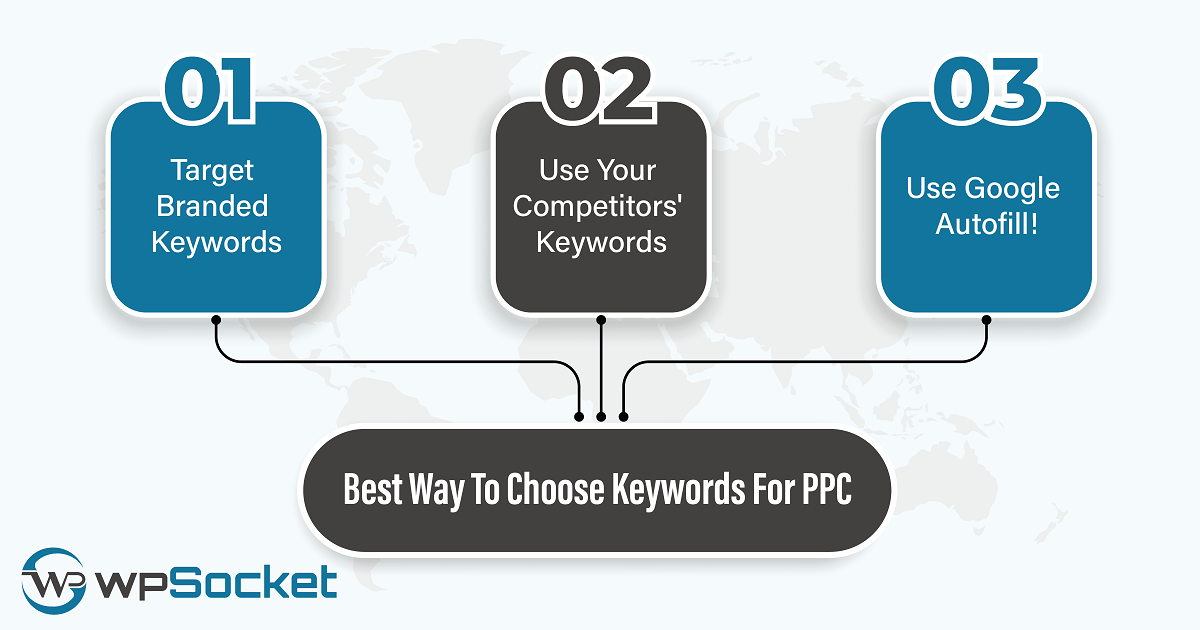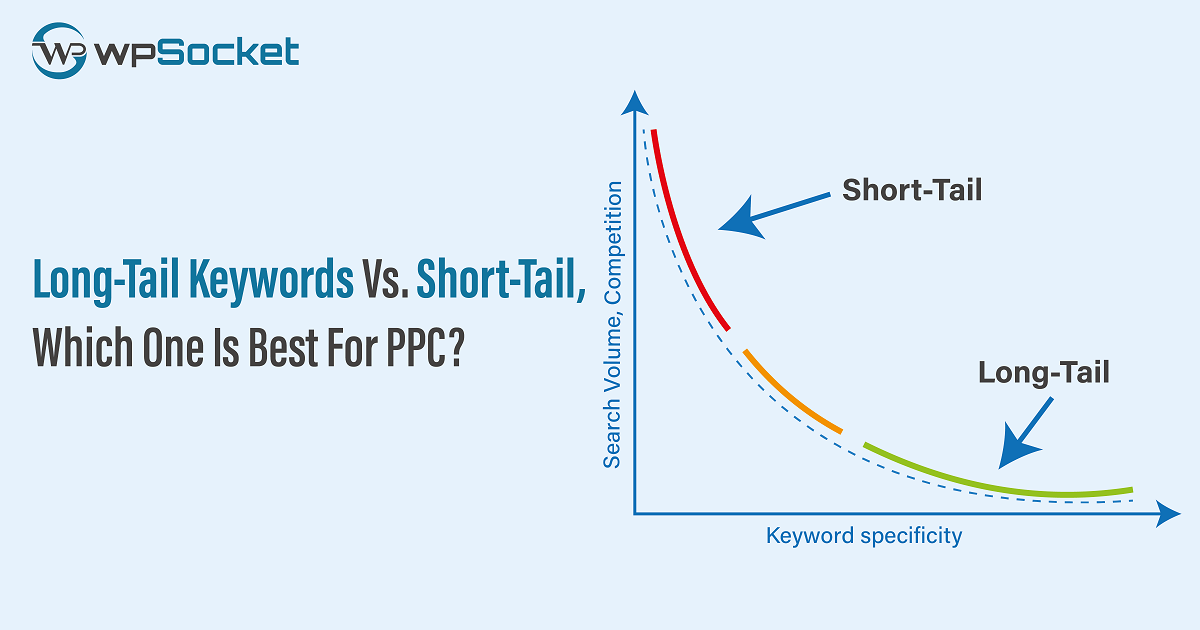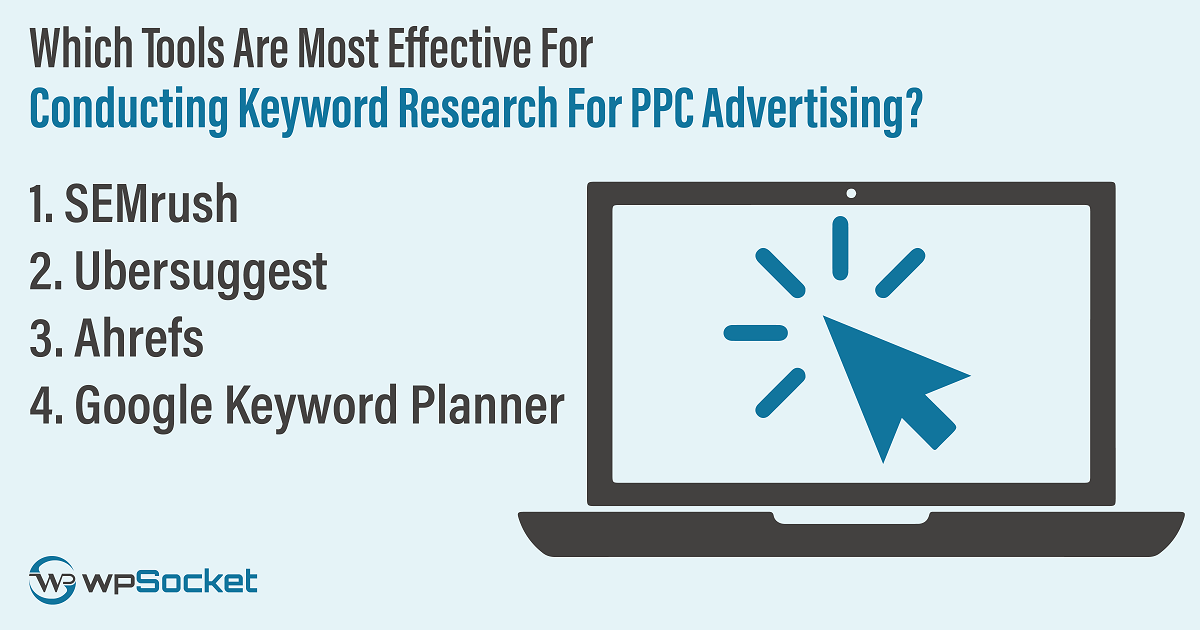PPC ads can increase sales, traffic, and brand awareness. Here is the best way to choose keywords for PPC, which can lead your PPC campaign to success.
In this digital era, every business is now turning its face to digital marketing along with the traditional one to attract more clients/customers and increase brand awareness.
Because having a presence in the digital world is as vital as the real one, as almost all consumers from all companies and business types are now using online. To make the online user aware of your business or sell products or services to them, you can utilize the pay-per-click ad option, which is better known as PPC.
In the pay-per-click advertisement method, you can easily reach your targeted audience, enhance brand awareness and increase your sales as PPC (pay-per-click) is a cost-effective, easy, and simple advertisement method available online.
However, for the best conversion and return on investment, your pay-per-click campaign has to be keyword optimized because running PPC campaigns without the perfect/accurate keywords won't give you the expected results.
Let's see what are the best ways to choose keywords for PPC, why to use PPC, and more.
What Is Pay-Per-Click (PPC)?
PPC stands for pay-per-click, a digital advertising method where you pay a fee each time someone clicks on your ad on platforms such as search engines or social media.
You can run pay-per-click ads on platforms such as Google Ads, Bing Ads, Facebook Ads, etc. The most common type of PPC ad is the search ad, which appears mostly on the top or bottom of the search engine results page (SERP) when someone searches for keywords related to your product or service.

Why Is Keyword Research Important For Pay-Per-Click (PPC) Campaigns?
The importance of keyword research for pay-per-click ad campaigns is similar to keyword research for content. Without keyword research, you won't get the expected results from your pay-per-click campaigns, and you may spend money on campaigns that won't bring any value or conversion to your website.
Here are some reasons why niche keyword research is important for pay-per-click advertisements. :
Know your audience: By doing niche keyword research, you can find out the keywords that match your business best. When you know what keywords are trending and what your targeted audiences are looking for, you can target those keywords in your pay-per-click (PPC) ads and make sure that your ads are reaching the right audience who are interested in or looking for the services, solutions or products that you offer.
Cost-Effective: With the perfect keywords, you can avoid spending money on clicks from people who are not likely to become your customers. This can help you to get more value from your PPC advertising campaign and save you thousands of dollars that could've gone down the drain!
Stay ahead in competition: Keyword research can also help you to find out the keywords that your competitors are using. By examining their campaigns and the keywords they are using, you can find ways to stand out and gain better results from your pay-per-click campaigns.
Higher conversion: With the right keywords, you can boost the chances of turning visitors into customers. This is because you are displaying your ads to people who are actively searching for the products or services that you offer.
Achieve your campaign goal quicker: Keyword research can help you to find out the keywords that are most likely to help you reach your campaign goals faster. You can achieve your campaign goals more quickly and effectively by targeting these keywords.
Best Way To Choose Keywords For PPC?
Pay-per-click (PPC) campaigns are a powerful tool to drive traffic and generate leads for your business. However, to make your campaigns successful, you need to choose the right keywords.

Here are the best ways to choose keywords for your PPC campaigns:
Target Branded Keywords:
Targeting branded keywords can be a smart strategy if you have a well-known brand or want to increase brand awareness. This allows you to protect your brand name and ensure that your ads appear at the top of search results when people search for a brand, service, or product related to you. It also helps to increase brand recognition and trust among potential customers.
Use Your Competitors' Keywords:
Analyzing your competitors' keywords is a great way to find new opportunities for your PPC campaigns. Look for gaps in their keyword strategies or find new keywords that they may not be targeting. This can help you reach a wider audience and attract potential customers who are searching for your competitors.
Use google autofill!:
This might not sound like the best method for niche keyword research, but if you use google for PPC campaigns, google autofill could be a great tool for finding relevant keywords and keyword suggestions.
Also, Read & Know What Are The Best Canva Keywords.

Long-Tail Keywords Vs. Short-Tail, Which One Is Best For PPC?
In pay-per-click (PPC) advertising, choosing the right keywords is crucial for success. But one main concern of a business or company is how to decide between long-tail keywords and short-tail keywords.
What are the advantages and disadvantages of each type of keyword? And which one is best for your PPC campaign?
Let's know briefly about long-tail and short-tail keywords
Long tail keywords are phrases that consist of four or more words, such as "Household moving service company near me". Short tail keywords are words or phrases that contain one to two words, such as "house service companies" or "moving company."
The main difference between long-tail and short-tail keywords is their level of specificity and competition. Long tail keywords are more specific and targeted, meaning they attract people who are looking for exactly what you offer.
On the other hand, short-tail keywords are broad; these keywords are highly competitive and have high search volumes, making them a popular choice for many advertisers.
Because of this difference, long-tail keywords have lower search volume but higher conversion rates than short-tail keywords. Also, long-tail keywords have lower competition and cost per click (CPC) compared to short-tail keywords.
This means that targeting long-tail keywords can help you save money and increase sales from your PPC advertising campaign.
Short-tail keywords have higher search volume and conversion rates than long-tail keywords. They also have higher competition and cost per click than long-tail keywords.
Those who want to increase website traffic and brand awareness from a PPC advertising campaign at full tilt can consider short-tail keywords but keep in mind that you'll need a good budget if you're willing to launch pay-per-click campaigns focusing on short-tail keywords.
So which one is best for pay-per-click advertising? The answer depends on your goals, budget, and industry. Short-tail keywords may be a good option if you want to reach a large audience and build brand recognition quickly.
And long-tail keywords can be a better option if you want to target a specific niche and generate sales over a period of time.
The best practice is to use a mix of both types of keywords in your PPC campaign. This way, you can balance the benefits of both types of keywords and optimize your PPC performance.

Which Tools Are Most Effective For Conducting Keyword Research For PPC Advertising?
When it comes to PPC advertising, keyword research is the most vital part of the process. Choosing the right keywords to target can make or break the success of your campaign. With so many tools available for conducting keyword research, it can be difficult to know which ones are the most effective.
Let's see four popular tools for conducting keyword research for PPC advertising, which are SEMrush, Ubersuggest, Ahrefs, and Google Keyword Planner.
SEMrush
SEMrush is a popular tool for keyword research and competitor analysis. It provides a wealth of data on keywords, including search volume, competition, and keyword difficulty. SEMrush also offers a feature called "Keyword Magic Tool", which generates keyword ideas based on a main keyword.
This feature can be useful for discovering unique and attractive long-tail keywords that may have less competition.
Moreover, SEMrush allows you to analyze your competitors' PPC campaigns to see which keywords they are targeting. This information can be valuable in identifying gaps in your own campaign and finding new keywords to target.
Ubersuggest
Ubersuggest is also a keyword research tool that provides similar data to SEMrush. It offers information on search volume, competition, and keyword difficulty. Ubersuggest also has a "Keyword generator" feature that will give you keyword ideas based on a given keyword.
Ahrefs
Ahrefs is a popular tool for SEO and PPC research. It provides in-depth data on keywords, including search volume, competition, and keyword difficulty. Ahrefs also has a "Keyword Explorer" feature that generates keyword ideas based on main and competitor keywords.
Google Keyword Planner
Google Keyword Planner is a completely free tool provided by Google Ads for conducting keyword research. It provides data on search volume, competition, and keyword ideas. Google Keyword Planner also lets you see historical keyword performance and trends data.
If you're considering using google for your next pay-per-click campaign, you can consider using google keyword planner as it can give you an accurate approximate idea about cost along with keyword search volume and other metrics!
These are some of the best keyword research tools available, which you can use for niche keyword searches and launch keyword-rich and well-optimized pay-per-click campaigns.
You can use both paid and free versions of semrush, Ahrefs andUbbersuggest, but you have to get a subscription to use these tools with their full-feature unlocked.

Why Consider Taking Keyword Research Service?
Keyword research is not always easy. It requires a deep understanding of your target audience, the ability to identify relevant keywords, and the knowledge to use those keywords effectively.
Consider taking keyword research services to help you overcome these challenges. Here are a few reasons why:
You might not find the right keyword for your campaigns
Even if you spend hours researching keywords, there's a chance you might not find the right ones for your campaigns. Keyword research services use advanced tools and techniques to identify keywords that are most relevant to your PPC campaigns.
They can also help you discover keywords that you might not have considered, which can be valuable in driving traffic to your website.
Keyword research is time-consuming
As a business owner, you have a lot on your plate, and keyword research can take up a significant amount of your time. By outsourcing this task to a professional keyword research service, you can free up your time to focus on other aspects of your business.
Keyword research requires expertise
Keyword research requires a specific skill and expertise that not everyone possesses. Keyword research services have experienced professionals who understand how to analyze data, identify relevant keywords, and create effective content that ranks well in search results.
By using their expertise, you can be confident that your keyword strategy for PPC campaigns will be effective and aligned with your business goals.
Looking for the best keyword research service agency? Wp Socket is here for you! Wp Socket offers various services related to niche keyword research, keyword ranking, pay-per-click, and cost-per-click campaigns.
Wp Socket's service will ensure your campaigns succeed and get the expected outcomes.




